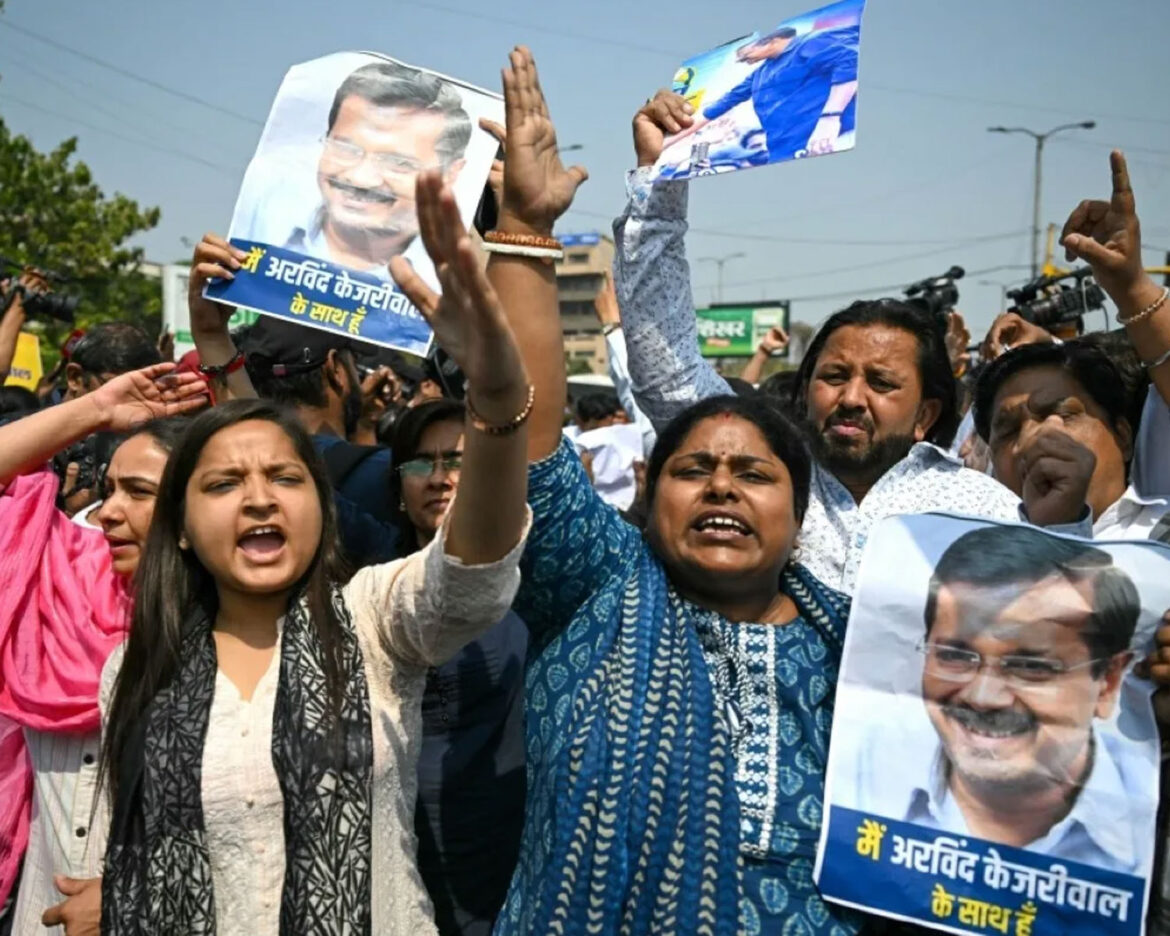India voices strong objection to US State Department’s comments on opposition leader’s arrest just ahead of elections
In a diplomatic move reflective of its commitment to sovereignty, India summoned a senior US diplomat on Wednesday over Washington’s recent remarks concerning the arrest of prominent opposition figure and Delhi Chief Minister Arvind Kejriwal, mere weeks before the crucial parliamentary elections.
The US State Department’s statement had called for a “fair, transparent, and timely legal process” for Kejriwal, who was detained last week on corruption charges. India swiftly reacted to what it deemed as unwarranted interference in its internal affairs, emphasizing the importance of respecting sovereign boundaries in diplomatic exchanges.
“We take strong objection to the remarks,” India’s foreign ministry stated, asserting that such comments were contrary to diplomatic norms, especially among democratic nations.
Gloria Berbena, a senior US diplomat, was seen entering India’s foreign ministry premises, symbolizing the formal summoning in response to the contentious remarks.
Germany had also raised concerns earlier regarding Kejriwal’s arrest, with India summoning Germany’s deputy ambassador in a similar fashion over the weekend.
Arvind Kejriwal, a significant figure in the opposition alliance gearing up to challenge Prime Minister Narendra Modi’s Bharatiya Janata Party (BJP), leads the Aam Aadmi Party (AAP) governing Delhi and Punjab. His arrest by the federal financial crime agency has sparked political tensions in the run-up to the elections slated to commence on April 19.
India has reiterated its stance on maintaining an independent judiciary and ensuring fair legal proceedings, dismissing any allegations of political interference. “India’s legal processes are based on an independent judiciary which is committed to objective and timely outcomes. Casting aspersions on that is unwarranted,” the Indian foreign ministry affirmed.
“In diplomacy, states are expected to be respectful of the sovereignty and internal affairs of others. This responsibility is even more so in case of fellow democracies. It could otherwise end up setting unhealthy precedents,” the statement concluded, underlining the significance of diplomatic decorum in international relations.



